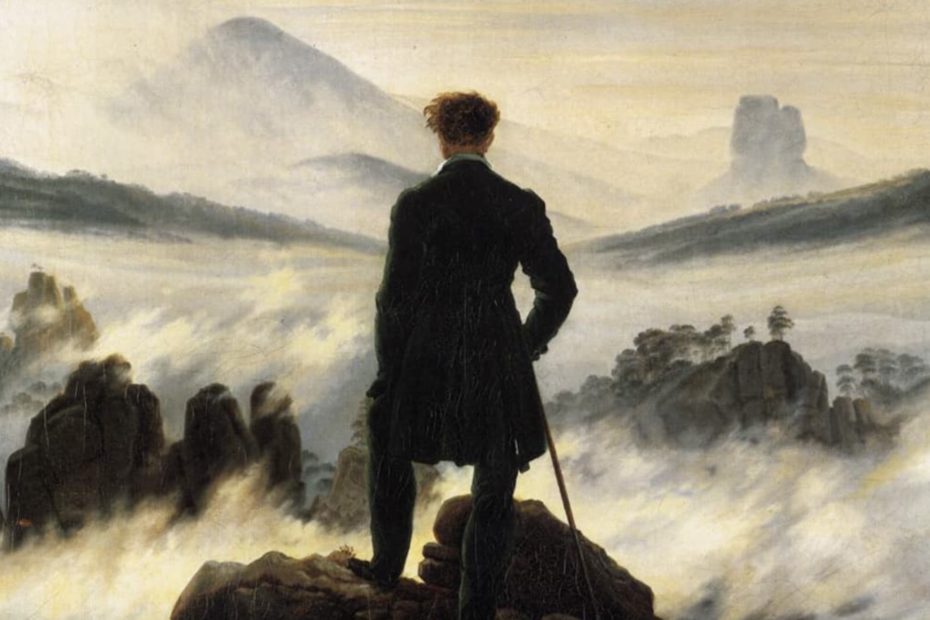“The Wanderer” paints a melancholy picture of nostalgia and a painful existence in a world where social classes are set in stone, but not only in the material sense: they also define one’s very essence as a human being. In this essay I would like to shed a light on how the sentiments of “The Wanderer” still reverberate in our modern world.
The perspective shown in the poem is of a man in a position of servitude and admiration of another, seen as superior, man. The speaker moves through the world aimlessly and alone, “not one remains alive to whom I could utter the thoughts in my heart”, in a bitter acceptance of his fate to be without a lord, “a downcast heart won’t defy destiny”. Through those lines we are shown the core of the speaker’s situation: his role in life is to serve and follow, that is unquestioned – “longing for a hall and a lord of things”. In the absence, death, of his lord, he is without home or purpose.
A modern reader might read this and apply a modern lens of individuality, thus pointing out that what separates us from said wanderer is the possibility of social ascension one might have, while the character is doomed to wander. However, beyond the fact that such ideas in the current world – when applied to majorities of any population – is feeble at best; one must realize the hierarchies embedded in our collective sense of self from the earliest age. The speaker in the poem is as doomed as any person in our reality of late capitalism, of being stuck to a world of devastation – from wars or from plain exploitation – and injustice. Just like the one who wanders, most of us lack the smallest hint of a sense of self, that is to say, we fail to recognize our own humanity and right to be, to exist without an excuse or a specific function to justify our livelihood.
To conclude, the poem is not only a beautiful glimpse at a past moment in history and a reminder that no matter when or where, all of us can feel lost and alone. It can also be a spark that makes one reflect about the human condition and the societies we build.
Publicado por

Beau Barros
Graduanda em Letras - inglês/literatura na UERJ. Sou professora de inglês, mas conforme o tempo passa desenvolvo um interesse muito maior em literatura, leitura e escrita do que no inglês por si só. Escrevo para organizar meus pensamentos e tenho interesse em compartilhá-los, não só no mundo acadêmico mas também como ativismo autista.
